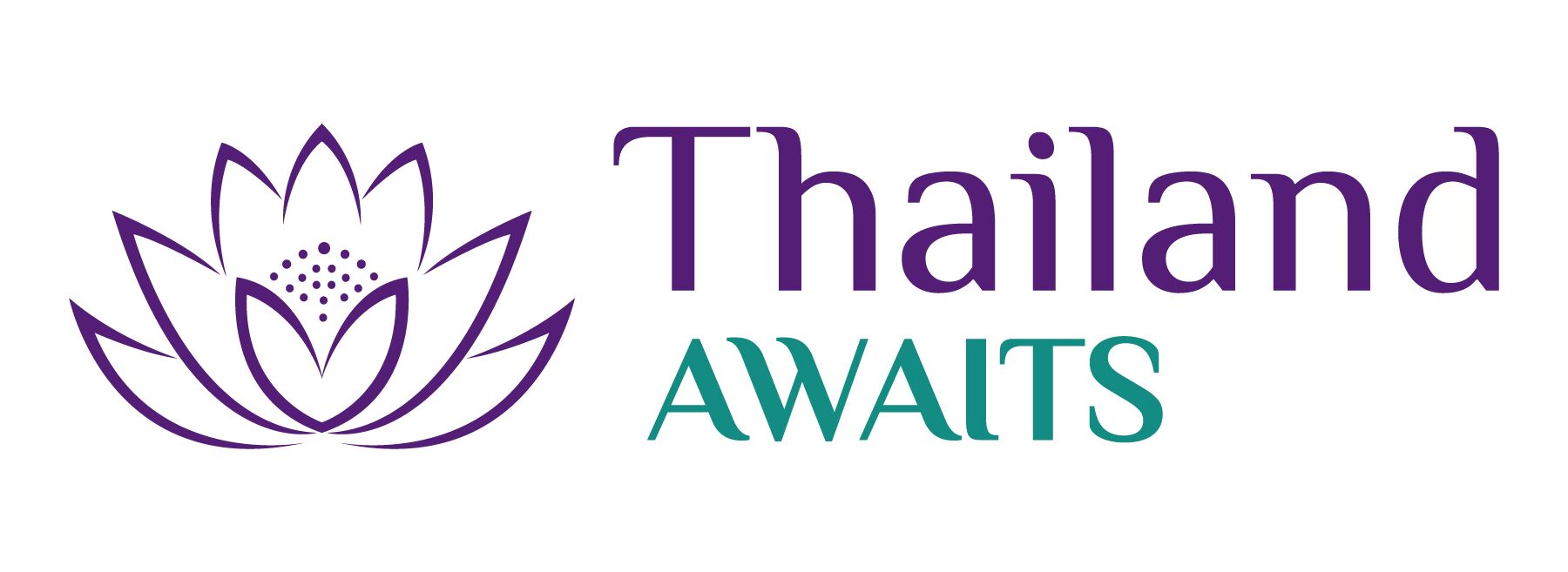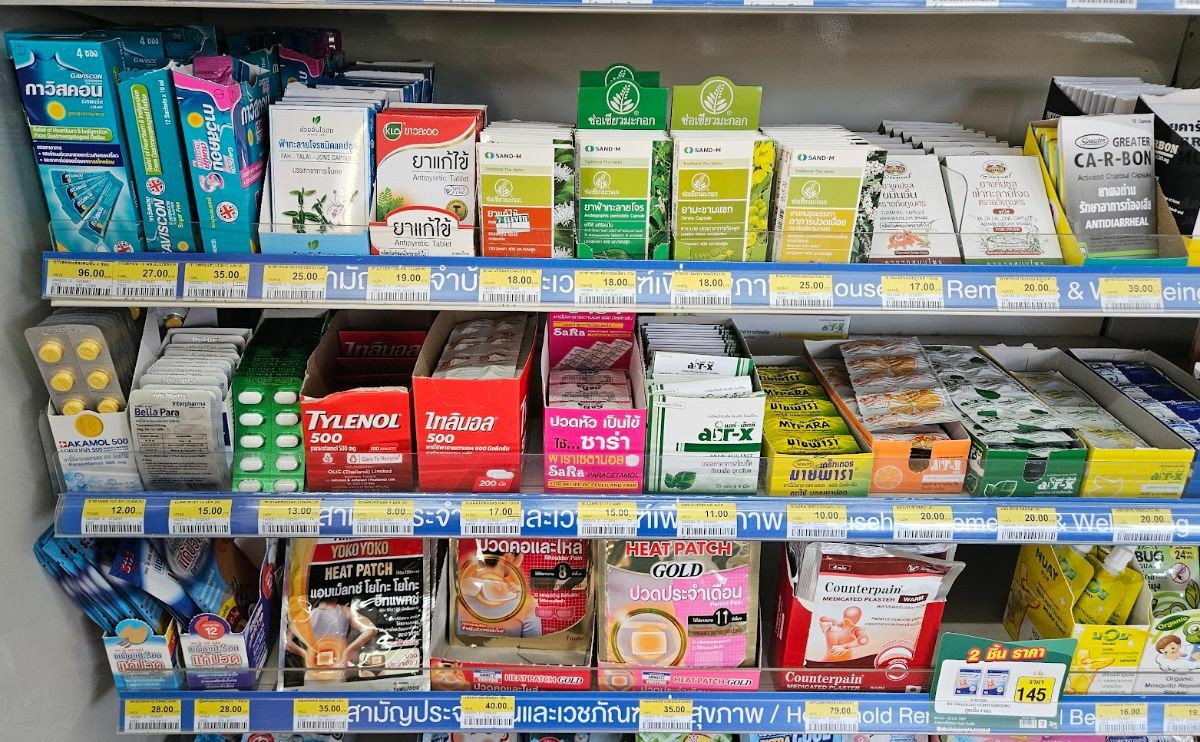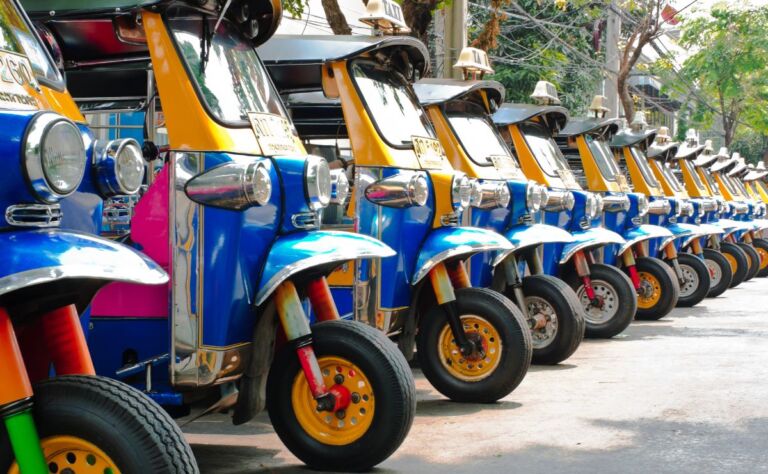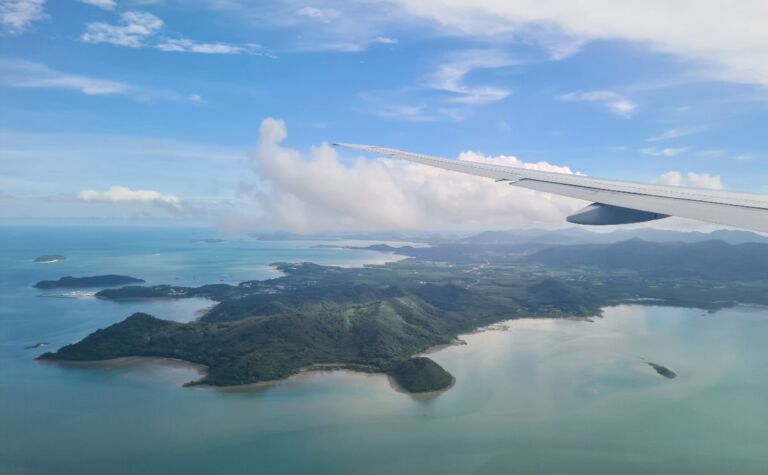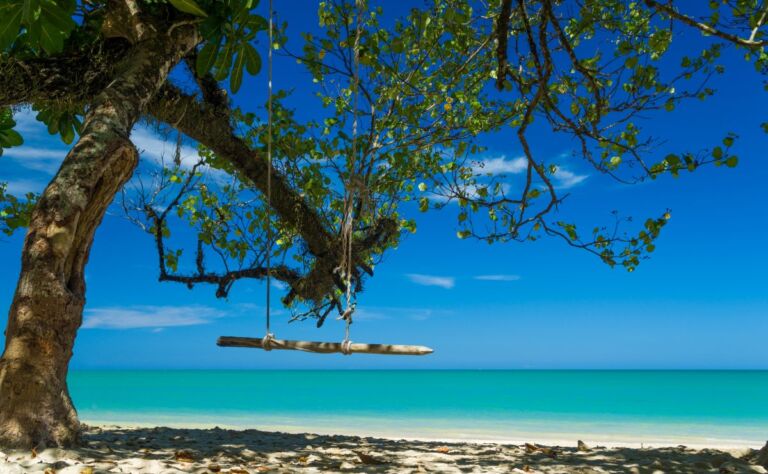A Traveller’s Guide to Medical Care in Thailand: From Pharmacies to Hospitals
If you find you need medical care in Thailand navigating Thailand’s healthcare system can be daunting. But with the right guidance, you can access top-notch medical care with ease. As an expat living in Thailand for over eight years, Stephen Christopher shares invaluable insights and tips to help you stay healthy during your visit.
This page contains affiliate links. Please see our disclosure policy for more details.
Getting sick while travelling can be a holiday destroyer. If you’re armed in advance with the knowledge of the medical system in the country you’re going to, you’ll save some of that stress.
I’ve been here for eight years now and I’ve had my fair share of illnesses and hospital visits. I’ll tell you a couple of the stories as we go. For the most part, I believe that medical care here is excellent. I sure wish I had this article written for me when I first got here, though.
Here’s what to do if you get sick.
Where to Get Medical Assistance in Thailand
Getting sick is just a part of life. It can happen at home or abroad. The only real difference is that when you’re at home, what to do is second nature, while overseas, it requires more thought and sometimes preparation.
When I first got here, everybody told me that if I got sick, I should go to the hospital, as that’s what most Thai people do. And yes, I’ve seen that even with a headache, one-off sessions of diarrhea, or a mild cough (pre-COVID days), Thai hospital ERs are packed with people with these lesser ailments.
However, there are numerous places to get help, and sure, the hospital is one, more on that in a sec, but it’s not always my first port of call. Here’s the order I go in:
What to expect at Thai Pharmacies
I think pharmacies in Thailand are mostly excellent. I taught English to pharmacy students at the university and was really impressed with their commitment to study. Of course, there’s good and bad everywhere.
One thing I have found in some pharmacies is that the pharmacist isn’t often on duty. That’s frustrating as the shop then becomes more of a beauty store. I learned that some pharmacists work across multiple stores and only put in a few hours at each. If they’re not there, a blind will be down over the OTC medicines, often with a time listed for their return.
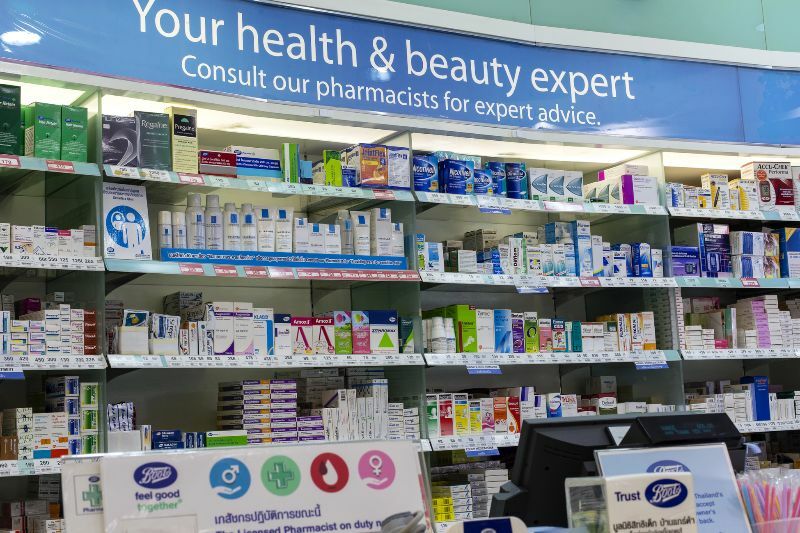
If you’re lucky enough to time it when the pharmacist is there, the other challenge I’ve found is that some of them are ‘symptom treaters’ only and don’t dig deep enough to find out what the problem is.
In my first month here back in 2016, I caught a cold and had a runny nose, a headache and a fever. I reported these symptoms to the pharmacist and walked away with Zyrtec (an allergy medicine that can stop sneezing), Tylenol (paracetamol for the headache), and Nurofen (ibuprofen for the fever).
Sure, they helped a little bit, but I probably didn’t need both the Tylenol and the Nurofen, so I spent money unnecessarily.
We’re fortunate where we are at our homestay in Kanchanaburi province; we have a local chemist, and she’s always on duty. She asks question after question to find out exactly what’s wrong, how it started if the symptoms have progressed, and so on. She then explains why she’s recommending the medicine she is and how it will help.
It’s trial and error, but if you find a good pharmacy, like we did, always go there first. So far, there’s only been one time when she told us to go to a medical centre or hospital as the illness was serious.
Over-the-counter (OTC) Medicine
One of the many things I love about medical assistance in Thailand is that I can get medicines over the counter here that I can’t in Australia. Now, I’m not saying that the labels aren’t correct, but I find that the Tylenol that I buy here relieves pain and makes me feel ‘happy’, whereas the one I bought in the US was pain medication only.
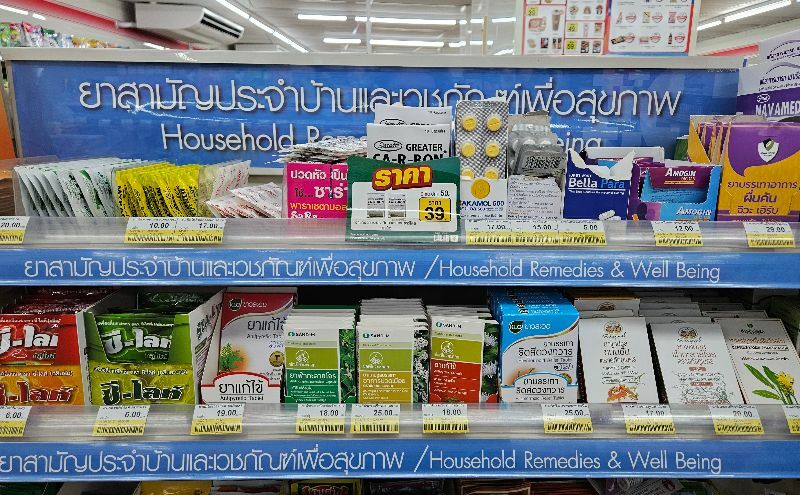
Like many things in Thailand, some pharmacists are super strict about what they’ll sell you, and others (mostly in major tourist centres) may be a little more fluid, so it’s worth asking if they stock what you need.
Medical Clinics
Medical centres are everywhere in Thailand, even in smaller communities. To be honest, they don’t look very inviting, there are queues of really ill people waiting to be seen, and the waiting seats look (and are) very uncomfortable.
Unlike medical centres in Australia or other Western countries, these aren’t like your local GP, where one doctor can treat every ailment. Each centre specialises in one part of the body. So, if you’re having chest pain, the one who treats bones and teeth can’t help. Even the one who handles internal medicine can’t look after a UTI.
The other challenge I’ve found is that English isn’t widely spoken here, so I always go with my husband. The benefit is that these places are significantly cheaper than hospitals, and I’ve been pleasantly surprised at how cheap consultation and treatment are.
Look, it’s not my favourite way to get treated. But in an emergency, it’ll do if there’s nowhere else.
Tip: it’s helpful to go with someone who speaks Thai unless you choose one that clearly says English speaking medical clinic.
Hospitals in THailand
And so we come to the hospitals.
At the end of my first month in Thailand, December 2016, I got a very nasty case of Bangkok Belly. I was staying in Silom, and my friend suggested the Bangkok Christian Hospital. It’s an old hospital, but everyone spoke English, and I felt I’d be treated well.
Within a few moments of a doctor seeing me, I ended up on a drip. At the time, I thought it was a bit extreme, but he explained that my electrolytes were down because I’d been sick for a few days. I later learned that being hooked up to a drip is very common in Thai hospitals and not always necessary. I probably could have got the same results by drinking a bottle of Powerade. So feel free to ask questions if you’re unsure if you should be treated that way.
Here’s the thing about hospitals worldwide. They’re money-making entities. All the staff are trained to look for the upsell, “Would you like fries with that?” Just because they tell you that you need three x-rays and eight blood tests, all because you have a headache (legit, one hospital did this to my husband!), it may be overkill. Again, I question if that’s really necessary.
Here’s a look at some of the hospitals in Thailand. There are loads, but these are the ones I’ve had experiences with or had recommended to me.
Bangkok Hospital
Bangkok Hospital Group is the most represented, with over 40 branches across the country. I’ve been there numerous times. It’s the one my mum goes to most (she’s 82 and sick often). Everyone speaks English, and it’s all very well organized, a bit like a production line.
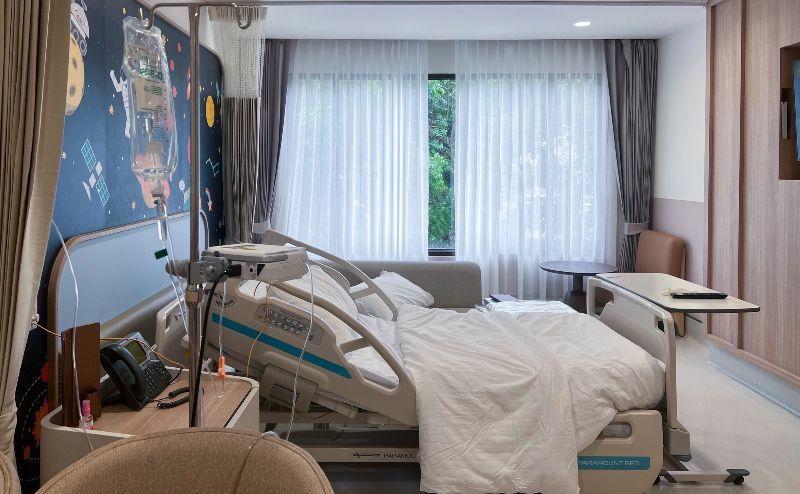
Waiting times aren’t that long for most things. This group is at the high end of the price scale, so be sure to have your credit card and insurance details handy.
Paolo Hospital
When I lived in Bangkok, the Paolo Group was my hospital of choice. There are five in the metropolitan area. I loved the service; I felt like the staff sincerely cared for their patients’ well-being. I barely had to wait to be seen, and the prices were significantly cheaper than at other hospitals. When I needed to do my annual health check for my work permit, they handled all the paperwork. I was so impressed.
I currently live 250km from Bangkok, but I would consider driving that far if I were sick just to go there again.
BNH Hospital
Here’s another story. I had a very painful lump appear under my arm, and my friends insisted I go to BNH Hospital in Sathorn as it was the leading expat hospital in the area.
I walked in and it was very fancy, there was a grand piano in the atrium being played by a pianist. I knew at once it was going to be expensive. I was working then and was covered by health insurance, so I wanted the best treatment, and money wasn’t an issue.
My doctor was absolutely wonderful, and I appreciate everything he did for me. In immediate day surgery, he removed the lump and sent it off for testing (just to be sure it wasn’t cancerous). I had to return every week for a month for him to remove the drain and recover the wound. It was a very expensive process, and thankfully, my insurance did cover it, as all up it was the equivalent of a month’s salary (as an English teacher). The good news is that the tests confirmed it was benign and just a painful lump.
Now that I’m retired, I can’t afford to go to BNH again. I’m relying these days on local medical centres. But I highly recommend BNH for those who have the extra money, as the service is first-class.
Bumrungrad International Hospital
I’ve never visited Bumrungrad Hospital, but many foreigners I talk to rave about it. It’s considered one of the biggest international hospitals in Southeast Asia, with world-class equipment and service.The hospital is listed in the top 250 hospitals in the world.
The hospital treats over 1 million patients yearly, with more than half being international visitors, either in the ER due to an accident or emergency, in outpatient for one-day treatments, complex health testing or for medical tourism. I like how the hospital is very transparent on its website about the cost of procedures. It’s located in Bangkok in Sukhumvit Soi 3.
Why Travel Insurance is a Must
When I was a travel agent, one of my mantras was, ‘If you can’t afford travel insurance, you can’t afford to travel.’ It wasn’t a sales pitch; it was a legitimate statement. Having an accident or emergency situation abroad can cost you hundreds of thousands of dollars. If repatriation is involved, forget about it; you’ll have to mortgage your house.
For the reasonable amount that travel insurance costs, it’s a must. There are tons of options out there. The more reputable ones have a 24-hour call centre that can advise you on which hospital to go to and how to proceed with the claims process.
I’m going to mention two products now. Full disclosure: Thailand Awaits does partner with these two, but we chose them for a reason: We believe in the product.
Covermore
When I was a travel agent, I sold Covermore by the boatload. It’s underwritten by Zurich, so you know it’s reliable. It has been providing travel insurance services for over 35 years.
Covermore has a 24-hour call centre, and I’ve met some of the staff. They really care about their clients. I always bought this product for myself when I was travelling.
Covermore covers tons of pre-existing conditions; it just needs to be applied for in advance and await approval. In many instances, if the claim is approved quickly enough, Covermore has direct billing arrangements with hospitals worldwide, so you’re not out of pocket.
SafetyWing
This company provides niche travel insurance for digital nomads (like me). You buy the policy in batches of four weeks and can take it at any time; you don’t need to apply before you leave home. For example, if I didn’t have any coverage, and I’ve been here eight years, I could buy a policy today that would start immediately in the case of accidents or emergencies—that’s pretty cool.
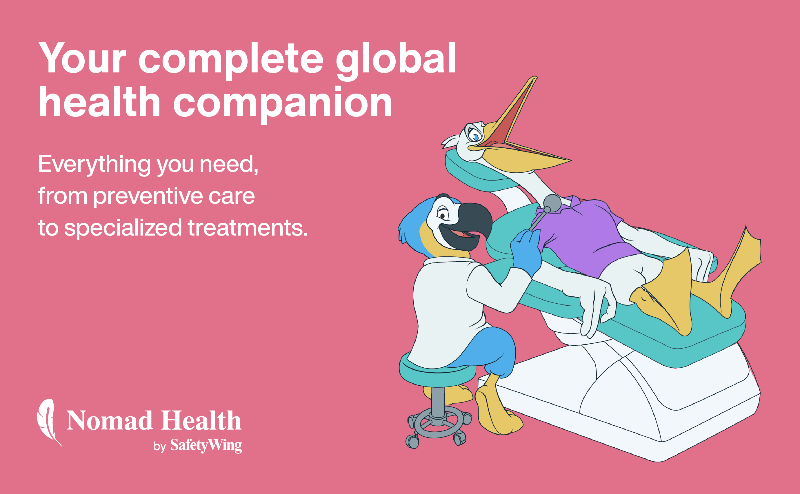
The limitations are that this product doesn’t cover pre-existing conditions or offer direct billing. You pay first, and if the claim is approved, you get reimbursed.
Sick or Injured? No Problem, Help is Everywhere
I’ve never been concerned about getting sick here in Thailand, and I find the medical assistance is world-class. I’ve had my fair share of hospital visits, and there are some I favour over others and some I’d never return to. It’s trial and error.
If you’re in Thailand and unwell, you can jump on the Thailand Obsessed Facebook page, and one of us may be able to suggest a place to go wherever you are.
Ready to start planning your Thailand trip? Our Facebook community Thailand Awaits is here to help. Join fellow travellers, get your questions answered by Thailand experts, and access free planning resources.
